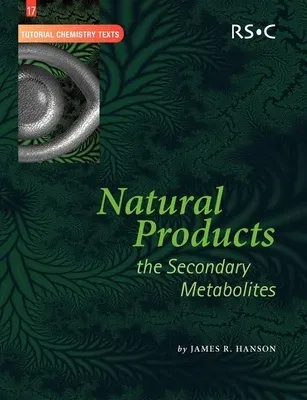Natural products are compounds that are produced by living systems and
the secondary metabolites are those which give particular species their
characteristic features. These natural products include polyketides,
terpenoids, phenylpropanoids, alkaloids and antibiotics. The study of
these natural products has played a major part in the development of
organic and medicinal chemistry and we are now starting to understand
the important ecological role that these compounds have. The aim of this
book is to describe the major features of these compounds and the way in
which chemical and physical methods have been used to establish their
structures and then to show how these structures can be rationalised in
biosynthetic terms. The first chapter describes the classes of natural
product, their biological activity and isolation. Subsequent chapters
attempt to link chemical and spectroscopic strategies in structure
elucidation, contrasting the classical chemical strategies that were
used in the past with modern spectroscopic methods. The final chapter
describes the biosynthesis of natural products. The elucidation of the
structures of natural products brings together many elements taught in
courses on functional group chemistry, stereochemistry and elementary
spectroscopy. This book will therefore be welcomed by lecturers and
students of second-year chemistry courses. Ideal for the needs of
undergraduate chemistry students, Tutorial Chemistry Texts is a major
series consisting of short, single topic or modular texts concentrating
on the fundamental areas of chemistry taught in undergraduate science
courses. Each book provides a concise account of the basic principles
underlying a given subject, embodying an independent-learning philosophy
and including worked examples.

